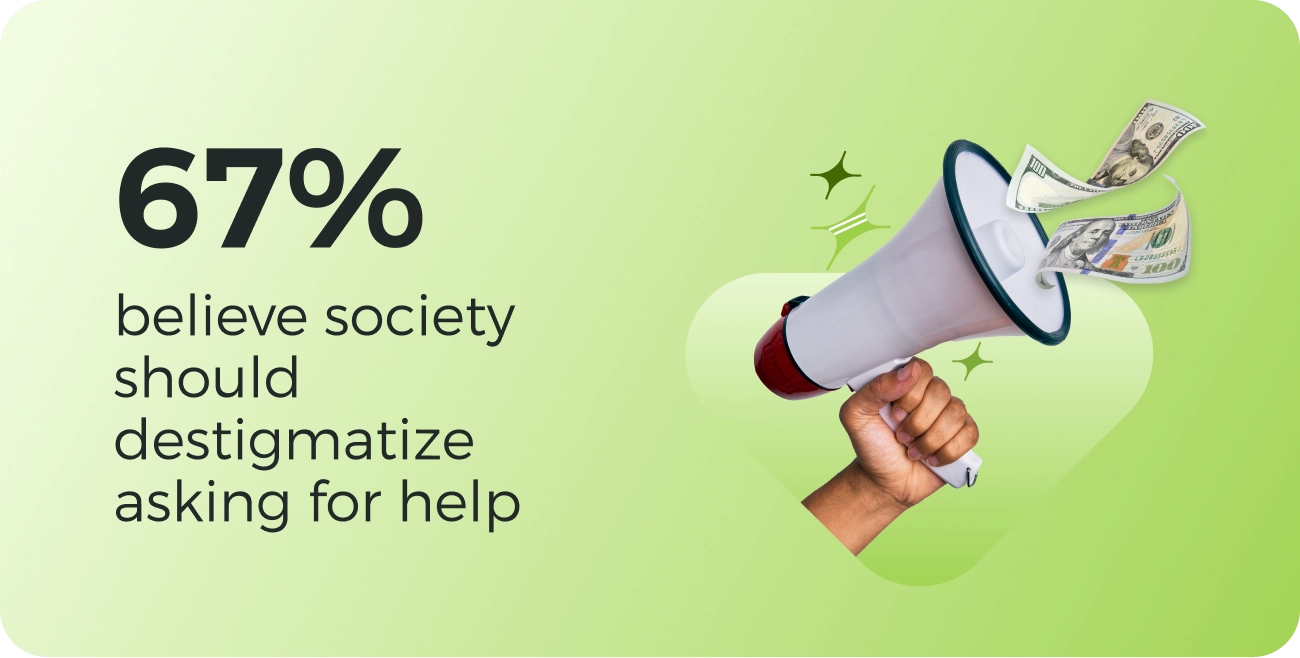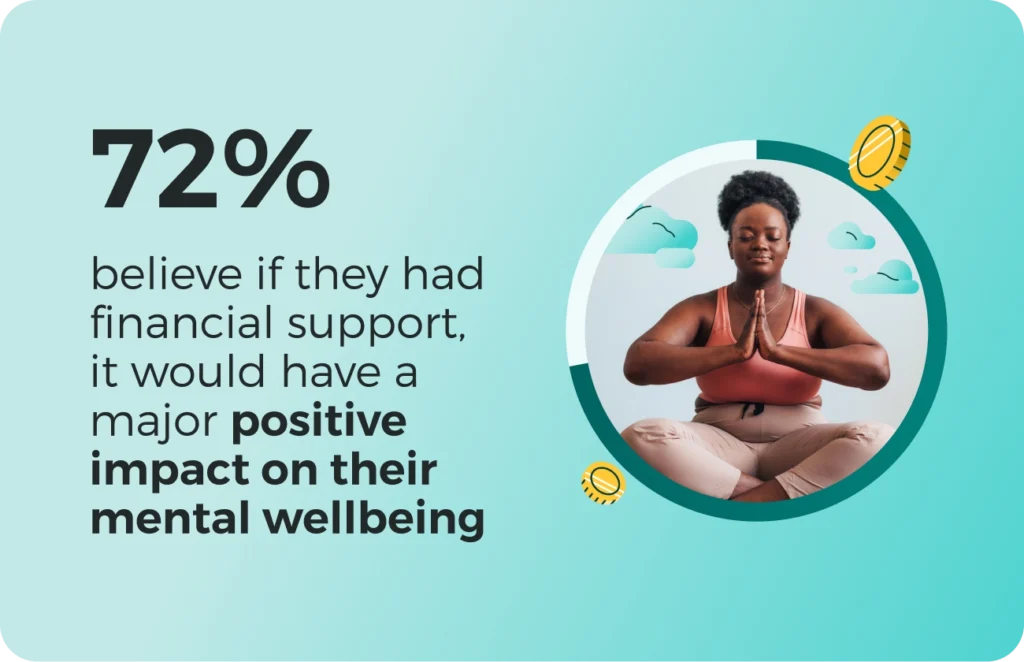
Key takeaways
- 67% of U.S. adults say it’s time to erase the stigma around asking for financial support—an important step in reducing financial stress.
- Millennials (71%) and Gen Z (66%) are most likely to seek financial guidance to reach their goals.
- 81% say their financial institutions could do more to understand them, and 72% believe better financial support would improve mental health and financial decision-making.
The truth about money in 2025
Let’s be honest—money can be stressful. We’ve all had moments when we needed a little bit of help but felt too afraid to ask. Or maybe you didn’t know who to ask? You’re not alone. Whether it’s splitting the bill, managing an unexpected expense, or figuring out how to make ends meet, many of us have been taught that needing support means we’ve somehow fallen short. But what if it didn’t?
New research reveals a shift
A new survey* conducted by Talker Research on behalf of Upstart shows that Americans are rewriting the story around asking for support. Across generations, 67% of people agree it’s time to erase the negative stigma around asking for help. The survey also reveals that as financial pressures grow, many believe stronger guidance from financial institutions could boost both confidence and overall well-being.

Younger adults are normalizing the conversation, seeing financial support as something to embrace—not hide. While only 54% of Gen X and 45% of Boomers see asking for help as a positive, that changes with younger groups: 66% of Gen Z and 71% of Millennials view it as a powerful strategy for reaching their goals. With attitudes towards money evolving, reaching out for guidance is becoming recognized as a practical, even strategic, approach to financial challenges. Many even shared how they think we could destigmatize asking for help:
One correspondent said, “[We should make] people feel like it’s OK to ask for help. In doing this, it would empower people to find the resources they need in order to help themselves and others.”
Financial stress in statistics
Money touches nearly every part of our life—and for many, it’s the biggest source of stress. 87% of Americans say finances add to their anxiety most often from living paycheck to paycheck (41%), handling unexpected costs (23%), managing high-interest debt (13%), or feeling a lack of support (12%).

Even more telling? 81% of people say their financial institutions could be doing more to help. “Getting the right financial support is a major unlock for most Americans,” said Chantal Rapport, Chief Marketing Officer at Upstart. “So much of our lives are tied to our financial situations, so when people are understood and supported by trustworthy financial partners, they can focus on what matters and go on to do great things in their lives and their communities.”
Americans call for better financial support
Better financial support could make a real difference. 72% believe that better financial support would have a major positive impact on their mental wellbeing. Two-thirds also say it would actually increase their confidence when making financial decisions.

When people have access to the right tools, they can build momentum toward their goals. “It’s natural for people to feel this internal struggle when it comes to asking for help, but this survey shows that the stigma is slowly fading away,” said Erin Opperman, Vice President of Creative at Upstart. “No one should feel like they’re being judged simply because they could use a little extra support. Having systems in place to help people progress is how we grow together as a society.”
Financial support that builds confidence
Asking for help isn’t about falling behind—it’s about moving forward with confidence. More and more people are realizing that reaching out for support isn’t a weakness, it’s a strength. At Upstart, we believe that everyone deserves access to financial support that empowers them—without judgement. Because when people feel understood and encouraged, they don’t just change their finances, they change their futures. 
*Survey Methodology: Talker Research surveyed 2,000 American adults, split evenly by generation (Gen Z, Millennial, Gen X, and Baby Boomer). The survey was commissioned by Upstart and conducted online by Talker Research between September 30 and October 6, 2025. Results are based on self-reported responses and are not intended to represent all consumers.
Frequently Asked Questions
Q1. Why is asking for financial help a smart strategy?
It’s increasingly seen as a practical way to handle money challenges—not a shortcoming—especially among younger adults.
Q2. How does support affect stress and well-being?
72% of Americans believe that better financial support would reduce stress and have a positive impact on mental well-being.
Q3. Can support improve confidence in money decisions?
Yes—most respondents say that with more support from financial institutions, they’d feel more confident making financial decisions.
Q4. What keeps people from asking for help?
Stigma. Many believe we should erase the negativity around asking for help so people can more easily access resources.






 Won't affect your credit score¹
Won't affect your credit score¹